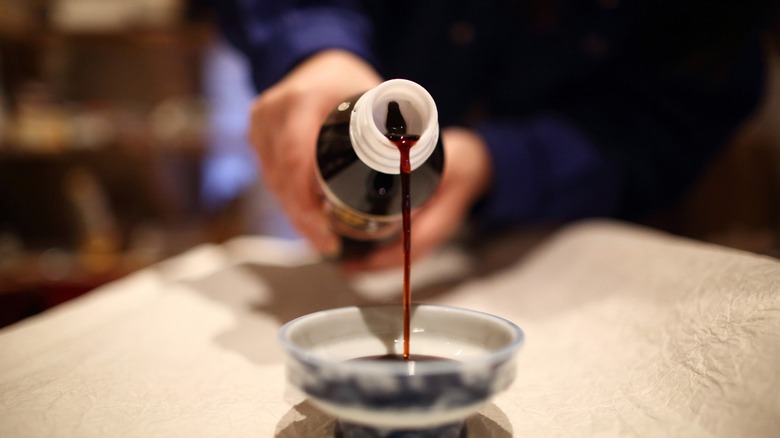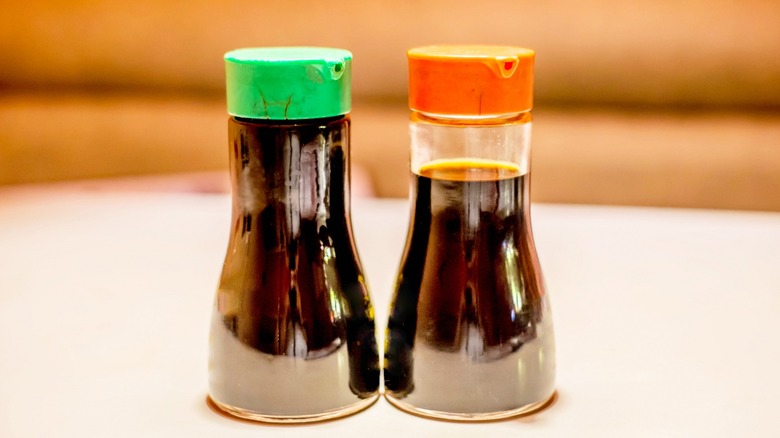Tempering The Saltiness Of Soy Sauce Is Astoundingly Simple
Soy sauce is an absolute essential in Asian cuisine and beyond, both as an ingredient used during the cooking process and as a condiment sprinkled on or dipped in afterward. Take sushi, for example. What would it be without this thin-bodied, dark-brown, umami-rich component? Well, a lot less salty for one. That's the one challenge with soy sauce — it's incredibly salty, more salt than you may want to consume. But there's no need to miss out on this incredible flavor enhancer altogether, even if you're concerned with managing sodium intake or you simply don't like the taste of it when it's overpowering. When it comes to tempering the saltiness of soy sauce, it turns out the solution is pretty straightforward — just add water.
Also known as shoyu, soy sauce is made of fermented soybeans, wheat, water, and salt. According to WebMD, a single tablespoon of soy sauce typically contains 878 milligrams of sodium. That's almost 40% of the daily recommended amount, and some brands are even higher. Though sodium is essential for proper body function, as with most things in life, it's all about the proper balance. Because excessive quantities of sodium have been linked to high blood pressure, which can lead to heart disease and stroke, you might want to consider reducing the sodium in your soy sauce.
How to reduce the sodium in soy sauce using water
The easiest way to reduce the amount of sodium in soy sauce is to purchase low-sodium versions. The difference is significant. However, some low-sodium options have received un-flavor-able criticism. If you don't like low-sodium versions, you can't find one at your local grocer, or you accidentally put in 2 tablespoons of regular soy sauce when your recipe really called for 2 teaspoons — just diluting your soy sauce with a little water can reduce its saltiness, mellowing its flavor a bit. Prepare the dilution ahead of time; this allows you to taste it before adding to your recipe and ensures your desired flavor balance. You can sub other liquids, too, such as citrus juice. The acidity of lemon, lime, or orange juice adds new dimensions and counterbalances saltiness. Not in the mood for more acidity? Go sweet instead by adding a little sugar to help soften the bite of the salt and thicken the sauce.
Lastly, be sure to compare brands as sodium content varies. And don't confuse low-sodium with "light" soy sauce. Despite its name, light soy sauce is often the saltiest even over dark soy sauce varieties which are thicker and have been fermented longer. With a little experimentation, you can find the best combo to reduce the salinity of your soy sauce, while still appeasing your palate.

